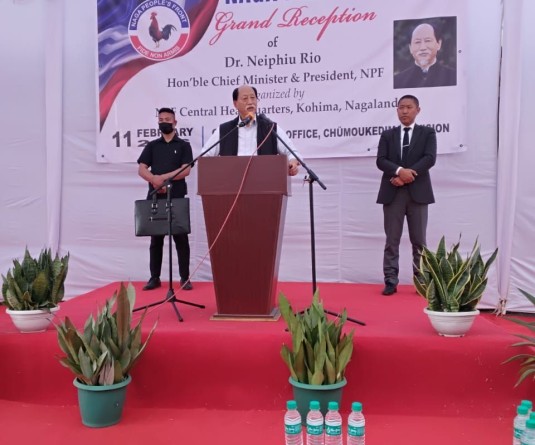
Morung Express News
Dimapur | July 17
The Directorate of Economics & Statistics (DE&S) has called for the timely registration of births and deaths in Nagaland, citing it as a key factor behind various issues affecting the Civil Registration System (CRS).
In response to specific queries posed by The Morung Express in June regarding the high number of delayed registrations of birth and death records in the State, the Department identified the primary reason as the lack of “timely reporting” by the general public.
Despite continuous efforts to raise awareness about the importance and legal requirement of registering births and deaths within the stipulated time as mandated by law, a considerable number of cases continue to be reported late, often well beyond the prescribed registration window, it stated.
This delay results in procedural delays, hinders the timely issuance of certificates, and leads to a decline in recorded data, according to the response issued by DE&S Director Keditsu.
Steps to improve compliance
On the steps being taken to improve timely registration and CRS compliance, the department noted that it is actively working to sensitise the public through awareness campaigns, posters, and collaborations with local bodies and media outlets.
These sensitisation efforts aim to foster better understanding, encourage timely compliance, and ensure wider outreach, it added.
However, the response did not elaborate on the sharp decline in the registration of deaths post-2014, which has dropped to below 3000 annually, compared to the previous decade’s average of over 6750 per year.
What is CRS?
The Civil Registration System (CRS) involves the continuous and mandatory recording of vital life events such as births, deaths, and stillbirths.
These records serve to legally establish a person's identity, enable access to social benefits and rights, and assist in national planning and public health programmes.
For individuals, it ensures legal identity and access to entitlements, while at the national level, it plays a vital role in planning and programme evaluation, stated a sensitisation poster shared by the DE&S.
Registration of births and deaths is mandatory under the Registration of Births & Deaths Act, 1969, it added.

Registration process
According to the DE&S, registration is free if reported within 21 days of the birth or death.
For home events, the head of the household must report to the local Registrar, while in hospitals, the Medical Officer-in-charge is responsible. In cases of death, burial ground staff can also report the event.
If the 21-day window is missed, registration can still be done within 22–30 days for a nominal fee. For events reported between 30 days and 1 year, the District Registrar’s approval is required. If more than a year has passed, a Magistrate’s approval is necessary.
In urban areas, registrations can be carried out at DE&S offices and District Hospitals, while in rural areas, Village Registration Units and Community/Public Health Centres are authorised to register events.
Special provisions
The DE&S also highlighted certain special provisions including registration of births without a name, and the child's name can be added free of charge within 12 months. A small fee applies after this period.
Additionally, births occurring abroad can be registered within 60 days of return to India. However, deaths occurring abroad cannot be registered in India.
Online registration
Citizens can also apply for birth or death certificates online via the Registrar General & Census Commissioner, India portal at http://dc.crsorgi.gov.in.
The portal allows users to upload documents, pay late fees for delayed applications, and receive certificates digitally via email or phone.
Certificates issued manually can also be digitised for easy access through the portal.
Duties of registrars
While the general public is responsible for timely and accurate reporting as well as providing accurate information, the DE&S also listed the duties of every Registrar and Sub-Registrar.
These include being thoroughly informed of all births and deaths occurring within their jurisdiction, and subsequently ascertaining and registering the required details without seeking any fee or reward during the mandated period.
Certificates must be issued within 7 days of the event being reported.
Registrars and Sub-Registrars must also proactively register events on their own (Suo Motu), the DE&S added.





